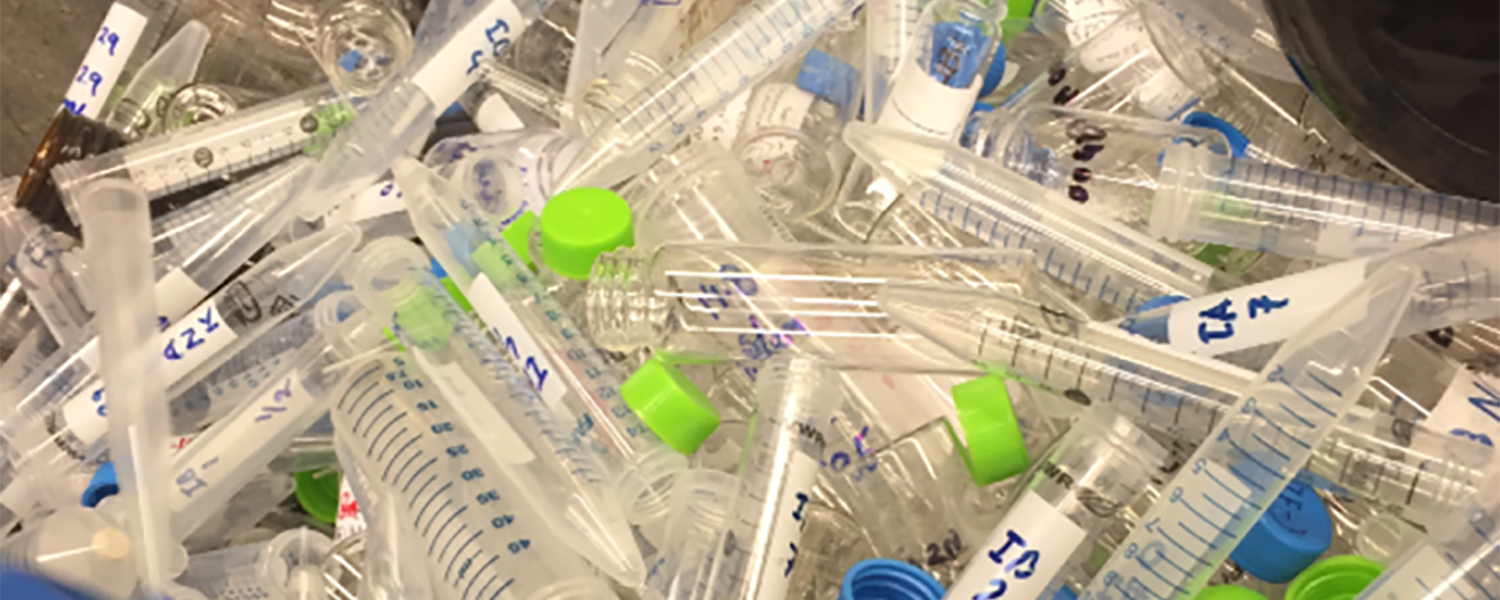
Toward Zero Waste – A Study in Reducing and Managing Lab Waste
Overview:
Gideon Choi, a MSc. Sustainable Energy Development (SEDV) student conducted a study on ways to reduce lab waste by addressing the question, “What zero waste design strategies will furthest reduce non-hazardous waste production at University of Calgary labs?”. The project is a graduate class capstone project, conducted under the supervision of Ana Pazmino, UCalgary’s waste and recycling coordinator, and academic supervisor Poornima Jayasinghe, a Project Coordinator, professor of Civil Engineering and in the SEDV program. Other university stakeholder groups involved include the Office of Sustainability, Caretaking, Environmental Health & Safety, and Hazardous Materials Section.
UCalgary’s forthcoming Zero Waste strategic plan aims to create a zero waste campus by 2030. One key challenge is addressing the high volume of non-hazardous lab waste produced annually by unrecycled glass and plastic, discarded lab equipment, and contaminated mixed recycling. According to current best estimates, non-hazardous lab waste accounts for 1-10% of the total mass of waste produced by UCalgary, annually.
Outcomes:
The project utilized an electronic survey and personal interviews, along with academic literature review to formulate a best practice manual for waste diversion and sustainable lab practices. Personal interviews were conducted with the university’s stakeholders, waste diversion industry representatives, and lab waste reduction counterparts from University of Alberta and University of British Columbia. The electronic survey was sent to all lab workers at UCalgary and data was collected on familiarity with waste collection protocols. Feedback was also sought on how to improve non-hazardous waste management at labs.
Central to the findings of the project is that voluntary adoption of pro-environmental behaviours can be encouraged through education, clear communication, commendations and strategic pursuance of more waste diversion options. Barriers to behaviour change relate to both cost and effort involved in a particular sustainable lab activity.
- Production of online and print based visual media is essential in educational efforts, and consistent adherence to rejecting contaminated waste streams is necessary to continually improve waste diversion.
- Developing a sustainable labs certification system could function as a central driver for improving waste diversion and sustainable activities in labs, and such activities are most effective when they are incorporated into an institution’s sustainability strategy.
Next steps:
- Key findings have been presented to stakeholders from UCalgary’s Caretaking, Environmental Health & Safety, and the Office of Sustainability.
- An invitation has also been extended to Choi to contribute in UCalgary’s upcoming Zero Waste strategic plan.
- A Quality Money proposal will also be submitted to develop and pilot a sustainable labs certification model specific to the UCalgary context.
- Research will be shared with other sustainable labs counterparts from various universities.
This research was funded in part by the Government of Canada’s Sustainable Development Goals.
